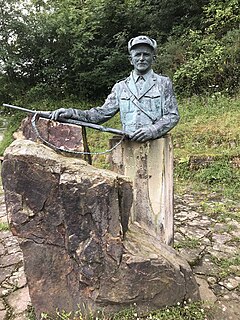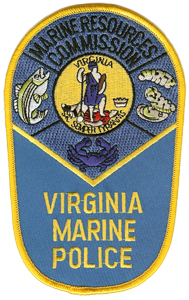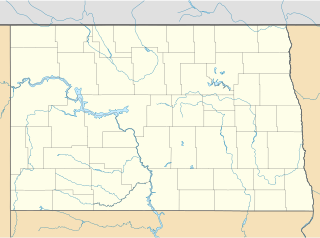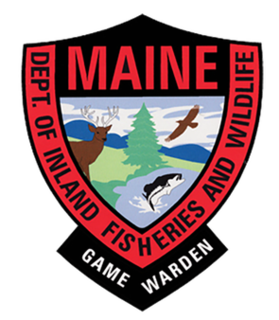
The Kentucky Department of Fish and Wildlife Resources, an agency of the Kentucky Tourism, Arts and Heritage Cabinet, is responsible for the conservation of wildlife resources and for boating projects in the state. A commissioner appointed by the Fish and Wildlife Commission heads the department. The commission--which oversees the department's commissioner and promulgates regulations governing fishing, hunting and boating--is a nine-member bipartisan board appointed by the governor from a list of candidates nominated by active hunters and anglers in each of nine geographic districts in the state.

The Michigan Department of Natural Resources (DNR) is the agency of the state of Michigan charged with maintaining natural resources such as state parks, state forests, and recreation areas. It is governed by a director appointed by the Governor and accepted by the Natural Resources Commission. Currently the Director is Daniel Eichinger. The DNR has about 1,400 permanent employees, and over 1,600 seasonal employees.

The Texas Parks & Wildlife Department (TPWD) is a Texas state agency that oversees and protects wildlife and their habitats. In addition, the agency is responsible for managing the state's parks and historical areas. Its mission is to manage and conserve the natural and cultural resources of Texas and to provide hunting, fishing, and outdoor recreation opportunities for the use and enjoyment of present and future generations.

The Oregon State Police (OSP) is a law enforcement agency of the U.S. state of Oregon. The OSP enforces all of Oregon's criminal laws and assists local law enforcement agencies. Terri Davie has served as Superintendent since November 1, 2020. The agency differs from other state police highway patrol agencies in that OSP has many other areas of specialization and responsibility. In addition to the Patrol Division, OSP has a Criminal Division, SWAT, DPU, MRT, a Forensic Services Division, a Fish and Wildlife Division, a Medical Examiner's Division, an Oregon State Fire Marshal Division, and it is one of the few law enforcement agencies in the United States that monitors the security of the state lottery. Oregon State Police has primary jurisdiction on state highways and all other state owned property, including state prisons and other facilities. It also frequently responds to incidents in rural areas when local agencies lack capacity or otherwise require assistance.

The South Carolina Department of Natural Resources (DNR) is a South Carolina state agency charged with regulating hunting, fishing, boating, duck stamp orders, and the conservation efforts of the state government.

The California Department of Fish and Wildlife (CDFW), formerly known as the California Department of Fish and Game (CDFG), is a state agency under the California Natural Resources Agency. The Department of Fish and Wildlife manages and protects the state's wildlife, wildflowers, trees, mushrooms, algae (kelp) and native habitats (ecosystems). The department is responsible for regulatory enforcement and management of related recreational, commercial, scientific, and educational uses. The department also prevents illegal poaching.

The Pennsylvania Game Commission (PGC) is the state agency responsible for wildlife conservation and management in Pennsylvania in the United States. It was originally founded 127 years ago and currently utilizes more than 700 full-time employees and thousands of part-time and volunteers in its official mission to "manage and protect wildlife and their habitats while promoting hunting and trapping for current and future generations."

A conservation officer is a law enforcement officer who protects wildlife and the environment. A conservation officer may also be referred to as an environmental technician or technologist, game warden, forest ranger, forest watcher, forest guard, forester, gamekeeper, investigator, wilderness officer, wildlife officer, or wildlife trooper.
The Alabama Department of Conservation and Natural Resources (ADCNR) is the state agency responsible for the conservation and management of Alabama's natural resources including state parks, state lands, wildlife and aquatic resources. ADCNR also issues hunting and fishing licenses for the state. The department promotes wise stewardship and enjoyment of the state's natural resources through five divisions: Marine Resources, State Lands, State Parks and Wildlife and Freshwater Fisheries. Supporting those divisions are seven support sections: Accounting, Diversity and Recruiting, Engineering, Information and Education, Information Technology, Legal, and Personnel and Payroll.

The Louisiana Department of Wildlife & Fisheries – Enforcement Division (LDWF) is the fish & game regulatory agency of Louisiana. It has jurisdiction anywhere in the state, and in state territorial waters. The agency enforces both state and federal laws dealing with hunting, fishing, and boating safety. The agency also enforces criminal laws in rural areas including DWI enforcement both on highways and waterways. Most of the Department's Wildlife Agents also carry Federal law enforcement commissions issued from the United States Department of the Interior - U.S. Fish and Wildlife Service, and United States Department of Commerce - U.S. National Marine Fisheries Service (NMFS). These federal commissions allow these state officers to enforce federal migratory waterfowl laws and federal marine fisheries laws in state and federal waters off the coast of Louisiana. Besides their traditional role as a "game warden", Louisiana Wildlife Enforcement Agents also have a number of other responsibilities, including conducting board of health inspections on some portions of the state's commercial fishing industry. Agents are trained in and conduct numerous search and rescue operations, both in remote land areas and on the state's waterways. Agents ensure that hunters, anglers, boaters, dealers, breeders, farmers, and transporters are in compliance with regulations governing equipment, quotas, licenses, and registrations. Agents also assist other State departments and law enforcement agencies in the coordination of educational and professional endeavors, as well as national and state emergency alerts by the Federal Office of Emergency Preparedness. In addition, agents perform search and rescue missions alone or in conjunction with other local, state, and federal agencies.

The Virginia Marine Police is the law enforcement division of the Virginia Marine Resources Commission, an agency of the Commonwealth of Virginia, United States.

The Maryland Natural Resources Police (NRP) is the law enforcement arm of the Maryland Department of Natural Resources (DNR). The mission of the men and women of NRP is to protect Maryland's residents and visitors on public lands and waterways. It also is charged with protecting fish and wildlife and leading search and rescue efforts. In addition, Natural Resources Police is the state's lead maritime homeland security agency.
The North Carolina Wildlife Resources Commission is a state government agency created by the General Assembly in 1947 to conserve and sustain North Carolina's fish and wildlife resources through research, scientific management, wise use, and public input. The Commission is the regulatory agency responsible for the enforcement of N.C. fishing, hunting, trapping and boating laws.
Michigan Conservation Officers are conservation officers who are the enforcement branch of the Michigan Department of Natural Resources. Their primary duty is to enforce the environmental laws in the State of Michigan. Michigan Conservation Officers are fully commissioned peace officers and are empowered to enforce all the laws of the state of Michigan.

The North American Game Warden Museum is a museum in the International Peace Garden on the Canada–United States international border between the Canadian province of Manitoba and the U.S. state of North Dakota. The museum is located on the American side of the border. Initially founded on a temporary basis at the International Peace Garden in the 1990s, it became a permanent museum in 2005.

The Montana Department of Fish, Wildlife and Parks (MFWP) is a government agency in the executive branch state of Montana in the United States with responsibility for protecting sustainable fish, wildlife, and state-owned park resources in Montana for the purpose of providing recreational activities. The agency engages in law enforcement activities to enforce laws and regulations regarding fish, wildlife, and state parks, and encourages safe recreational use of these resources.

The Massachusetts Environmental Police is a Massachusetts, US, state government law enforcement agency, which is the primary enforcement agency of Massachusetts's boating and recreation vehicle laws and regulations and is responsible for registering boats, off-highway vehicles and snowmobiles in Massachusetts. The agency is also responsible for the enforcement of fish and game laws, including commercial and recreational harvesting of the living marine resources along the state's coastline.

The Maine Warden Service is a police agency in the United States State of Maine responsible for the enforcement of fisheries and wildlife laws, and the coordination of search and rescue in wilderness areas of the state. Maine's game wardens strive to protect the state's fishing and hunting resources, Enforcing strict limits on the activities listed above to keep animal populations stable. Maine's Warden Service is operationally part of Maine's Department of Inland Fisheries and Wildlife, it is the oldest conservation law enforcement agency in the United States.

The Connecticut State Environmental Conservation Police,, is a Division within the Connecticut Department of Energy and Environmental Protection (DEEP) and serves as the primary law enforcement agency on all DEEP properties that include 65 state parks, 27 state forests, 10 wildlife management areas and all state waterways. Officers assigned to the EnCon Police are appointed under Connecticut General Statutes Chapter 490, §26-5 with their law enforcement authority derived from §26-6.

















